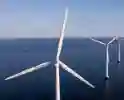RESEARCH
Projects
We transform ideas into action through our research projects, tackling global problems and making a difference in everyday lives.

Research in action
From health and inequality to social justice, energy, and climate change, our research addresses the most pressing challenges we face today. These projects aren’t just ideas on paper – they’re making a real difference in communities, shaping policies, and improving lives around the world.

FEATURED PROJECT
Propelling the future of offshore wind
- ONGOING
We’re driving the faster adoption of clean, sustainable and renewable offshore wind energy through an innovative academic-industry partnership.
Explore all featured research projects
Search for a specific project or browse our selection of recent and ongoing research projects to see how we’re making a difference - locally, nationally, and globally
Filters